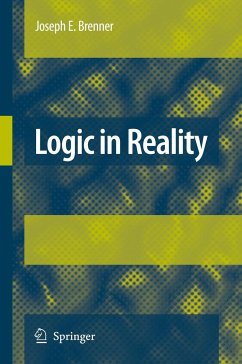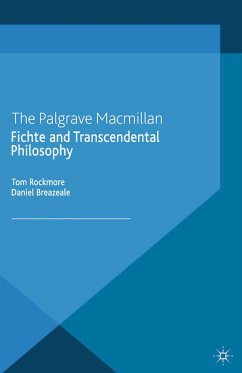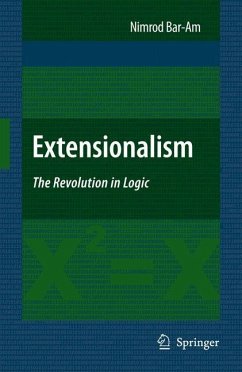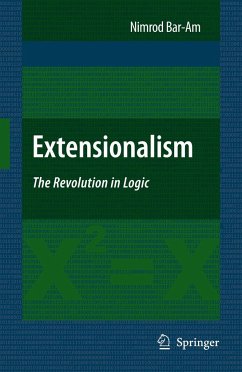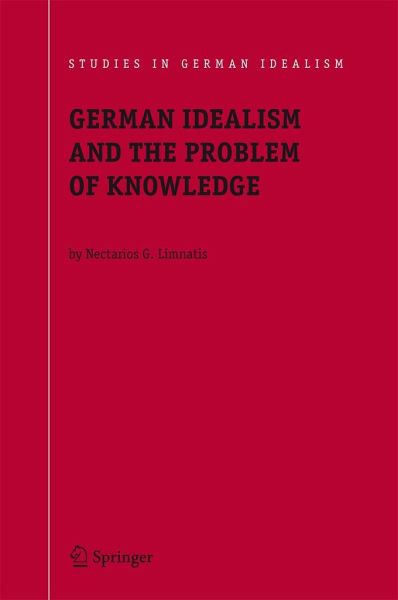
German Idealism and the Problem of Knowledge:
Kant, Fichte, Schelling, and Hegel
Versandkostenfrei!
Versandfertig in 6-10 Tagen
113,99 €
inkl. MwSt.
Weitere Ausgaben:

PAYBACK Punkte
57 °P sammeln!
The problem of knowledge in German Idealism has drawn increasing attention in recent years. This is the first attempt at a systematic critique that covers all four major figures, Kant, Fichte, Schelling, and Hegel. In examining the evolution of the German idealist discussion with respect to a broad array of concepts (epistemology, metaphysics, logic, dialectic, contradiction, totality, and several others), the author draws from a wide variety of sources in several languages, employs lucid and engaging language, and offers a fresh, incisive and challenging critique.
Limnatis contrasts Kant's epistemological assertiveness with his ontological scepticism as a critical issue in the development of the discourse in German Idealism, and argues that Fichte's phenomenological demarche only amplifies the Kantian impasse, but allows him to launch a path-breaking critique of formal logic, and to press forward the dialectic. Schelling's later restoration of metaphysics aims exactly at overcoming the Fichtean conflict between epistemological monism and ontological dualism. And it is Hegel who synthesizes the preceding discussion and unambiguously addresses the need for a new philosophical logic, the dialectical logic. Limnatis scrutinizes Hegel's deduction in the Phenomenology, invokes modern genetic epistemology, and advances a non-metaphysical reading of the Science of Logic as a genetic theory of systematic knowledge and as circular epistemology. Emphasizing the unity between the logical and the historical, the distinction between intellectual (verständlich) and rational (vernünftig) explanation, and the cognitive importance of contradiction, the author argues for the prospect of an evolving totality of reflective reason.
Limnatis contrasts Kant's epistemological assertiveness with his ontological scepticism as a critical issue in the development of the discourse in German Idealism, and argues that Fichte's phenomenological demarche only amplifies the Kantian impasse, but allows him to launch a path-breaking critique of formal logic, and to press forward the dialectic. Schelling's later restoration of metaphysics aims exactly at overcoming the Fichtean conflict between epistemological monism and ontological dualism. And it is Hegel who synthesizes the preceding discussion and unambiguously addresses the need for a new philosophical logic, the dialectical logic. Limnatis scrutinizes Hegel's deduction in the Phenomenology, invokes modern genetic epistemology, and advances a non-metaphysical reading of the Science of Logic as a genetic theory of systematic knowledge and as circular epistemology. Emphasizing the unity between the logical and the historical, the distinction between intellectual (verständlich) and rational (vernünftig) explanation, and the cognitive importance of contradiction, the author argues for the prospect of an evolving totality of reflective reason.
The movement of German idealism culminates in the revelation of the re? ective boundaries of theoretical knowledge. The history of the most important intellectual developments thereafter could be described, following a recent remark of Jürgen Habermas, as a his- 1 tory of the de-transcendentalization of the cognizing subject. In this context, the epistemological interpretation proposed in this book must be speci? cally understood. Examining the problem of knowledge in the development of German idealism, it aims not at an epistem- ogy of the Cartesian type, and even less at a formal logical analysis of knowledge which lacks the re? ective element of the devices it employs as the search for the immutable structures within which knowledge, 2 life, and culture must be contained. These structures do not only condition the process of knowledge, they are themselves conditioned. There is thus an unsurpassable circle in this process, a circle which German idealism brings to the surface and profoundly scrutinizes. Therefore, the task is to re? ectively account for the historical horizons in which cognition arises (being ultimately thereupon dependent), instead of searching for an ultimate Archimedean point for its deduction. Rather than searching for inexplicably transc- dental concepts, this argument points to their determination from within a given Lebenswelt. It does not renounce but rather rede? nes 3 objectivity, by seeing the subject as a coming-to-know-itself totality. 1 J. Habermas, Wahrheit und Rechtfertigung. Philosophische Aufsätze (Frankfurt a. M. : Suhrkamp, 1999), p. 186.








